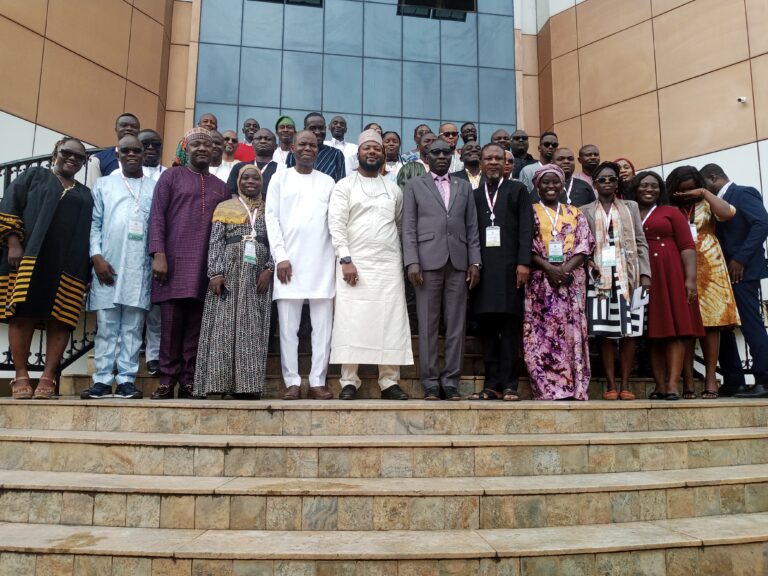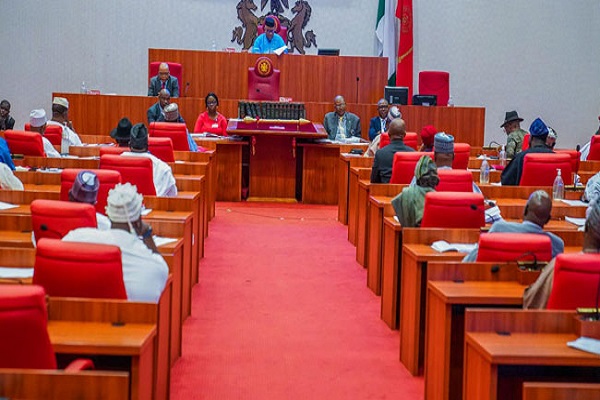News
Group tasks media on reporting money laundering, terrorist financing

The Inter-Governmental Action Group against Money Laundering in West Africa (GIABA) has charged the media in West Africa on effective coverage of money laundering and terrorism financing issues plaguing the region.
Mr Edwin Harris Jr., the Director-General, GIABA, gave the charge at the opening ceremony of the Regional Training Workshop on Investigative Journalism on Economic and Financial Crimes in West Africa in Abuja on Wednesday.
Harris said the media had a role to play in the treatment of general and factual information on crime and in the dissemination of research and studies on the fight against transnational organised crime.
The director-general also said the media, particularly investigative journalists, played a crucial role in uncovering allegations of corruption in the fight against financial and economic crimes.
Moreso, he added, the media should also promote good governance, attract the sustained attention of law enforcement authorities and the public to the fight against financial and economic crimes.
He, however, noted that media, an essential source of detection, remained under-exploited in corruption cases.
“To this end, it stresses the need for closer and more productive collaboration with the media, as you constitute one of the main sources of information and intelligence, both for political decision-makers and for the international information community, both for policy makers and the general public.”
Furthermore, Harris said GIABA, in line with its mandate, had carried out sensitisation programmes for media professionals since 2009.
He also said in 2010 in Abuja, GIABA established a regional network of investigative journalists specialised in the denunciation of economic and financial crimes.
“Furthermore, in line with the GIABA 2023 to 2027 strategic plan developed in the context of the ever-changing global Anti-Money Laundering/Combating the Financing of Terrorism (AML/CFT) outlook following the revision of Financial Action Task Force (FATF) standards and methodology, there has been focus on obligation to make regional AML/CFT interventions more effective.
“It aims to contribute to member states’ AML/CFT efforts and strengthen the engagement of non-state actors and critical sectors playing a crucial role in the effective implementation of AML/CFT measures,” he said
The GIABA boss also called on member states to cooperate as the group could not deal with the issues of money laundering and terrorism financing alone.
“Organised crime knows no borders and all nations must cooperate fully to deal with it.
“GIABA alone cannot overcome these problems. Whatever efforts we make at the regional level will have little impact without strong national commitments and institutions.
“We need the support of the various AML/CFT stakeholders, especially the media, to carry out our activities in order to prevent criminals from undermining the stability and integrity of our financial systems and economy in general.”
Also speaking with journalists in an interview, Mr Modibbo Tukur, the Director, Nigeria Financial Intelligence Unit (NFIU), said the issue of legislation differed across various parts of the region.
Mr Mohammed Ahmed represented the director.
“In Nigeria, the Money Laundering Prohibition and Prevention Act was passed in May 2022, and the Terrorism Prevention and Prohibition Act was passed also in 2022.
“Specifically speaking to Nigeria’s legislative framework, what that has done is it has strengthened the abilities of Nigerian institutions to counter and combat both money laundering and terrorism financing,
“and we are seeing the progress that law has brought about through our collaboration with GIABA, in terms of the assessment it has made to show where we have made progress and seeing parts of our laws that were not strong enough, and helping us to identify where we can make additional improvement.
“This collaboration between GIABA and the countries is very useful in terms of a process of continuous improvement. It is not a journey you can end in a single day.”
The three-day regional training is intended for journalists specialised in economic and financial crimes and investigative journalists from various categories of the media in GIABA member states.
The objective of the training is aimed at creating a platform for interaction with the media on money laundering and terrorism financing issues and on security-related news in the West African region.
Headline
Prince Harry visits sick Nigerian soldiers in Kaduna

Prince Harry and his team visited the 44 Nigerian Army Reference Hospital in Kaduna to interact with wounded soldiers who are receiving treatment.
The Duke of Sussex is in Nigeria with his wife to champion the Invictus Games, which Harry founded to aid the rehabilitation of wounded and sick servicemembers and veterans.
Nigeria joined the Invictus Community of Nations in 2022 becoming the first African country to join.
Prince Harry’s visit to Kaduna came 68 years after his late grandmother Queen Elizabeth II visited the state during the time of the late Premier of Northern Region Sir Ahmadu Bello.




News
Senate approves death penalty for drug traffickers

Senate on Thursday, May 9, approved the death penalty for those convicted on the charge of drug trafficking in the country.
The punishment prescribed in the extant NDLEA Act is a maximum sentence of life imprisonment.
The resolution of the Senate followed its consideration of a report of the Committees on Judiciary, Human Rights and Legal Matters and Drugs and Narcotics, National Drug Law Enforcement Agency (NDLEA) Act (Amendment) Bill, 2024.
The Chairman of the Committee on Judiciary, Human Rights & Legal Matters presented the report during plenary, Senator Mohammed Monguno (APC-Borno North).
The bill, which passed its third reading, aims to update the list of dangerous drugs, strengthen the operations of the NDLEA, review penalties, and empower the establishment of laboratories.
Section 11 of the current act prescribes that “any person who, without lawful authority; imports, manufactures, produces, processes, plants or grows the drugs popularly known as cocaine, LSD, heroin or any other similar drugs shall be guilty of an offence and liable on conviction to be sentenced to imprisonment for life” was amended to reflect a stiffer penalty of death.
Although the report did not recommend a death penalty for the offence, during consideration, Senator Ali Ndume moved that the life sentence should be upgraded to the death penalty.
During a clause-by-clause consideration of the Bill, Deputy Senate President Barau Jibrin, who presided over the session, put the amendment on the death penalty to a voice vote and ruled that the “ayes” had it.
But Senator Adams Oshiomhole objected to the ruling, saying that the “nays” had it.
He argued that matters of life and death should not be treated hurriedly, but Barau said it was too late, as he failed to call for division immediately after his ruling.
The bill was subsequently read for the third time and passed by the Senate.
-

 Headline5 days ago
Headline5 days agoSuspend cybersecurity levy– Reps to CBN
-

 Business5 days ago
Business5 days agoNigeria needs over $2bn to revive Ajaokuta Steel Plant, says Minister
-

 Headline3 days ago
Headline3 days agoPrince Harry visits sick Nigerian soldiers in Kaduna
-

 Entertainment3 days ago
Entertainment3 days agoAMVCA Cultural Day: BBNaija’s Neo, Venita win Best Dressed Male, Female
-

 Metro3 days ago
Metro3 days agoEx-Sports Minister laments after hospital neglected him for hours over N80000 deposit
-

 Headline5 days ago
Headline5 days agoTinubu resumes work after foreign trip
-

 News5 days ago
News5 days agoShan George’s money returned to Zenith Bank account



